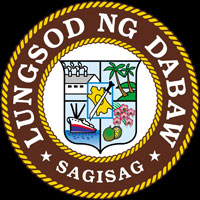
Joseph Dominic Felizarta, chief of the City Environment and Natural Resources Office (Cenro), said the city government will strictly implement the ban on non-biodegradable plastics and Polystyrene foam as food and beverage packaging starting June 28, when the city’s Ecological Solid Waste Management ordinance becomes fully-effective.
The ordinance was passed in 2010 yet but had to satisfy some rules first, such as publication, before it becomes effective.
Now, there is no more hindrance to its implementation, Felizarta said.
He said in lieu of plastics and styros, establishment owners could use the so-called “bio-plastics.” Bio-plastics are made from various types of degradable materials such as aliphatic polyesters.
“This is part of our effort to help protect our environment and this would also be helpful in preventing the clogging of our canals, which causes flooding,” Felizarta told the Inquirer.
He said a massive information campaign had been launched in connection with the upcoming ban – especially among the managements of supermarkets and public market vendors.
“So far there were no complaints or opposition to the ban as everyone was amenable to the idea to help in cleaning the environment,” Felizarta said.
He said, in fact, some big supermarkets have already taken measures and slowly introduced ways to avoid the use of plastics and styrofoams.
“One mall now uses paper bags for packaging at least once a week,” Felizarta said.
He said there is no way establishments can fool the city government either by pretending to use bio-plastics.
Felizarta said the Cenro will conduct tests to determine if plastics marked “biodegradable” are indeed genuine. Biodegrable plastics, he said, become brittle when exposed to heat of about 80 degrees centigrade.
Under the ordinance, Felizarta said first-time violators would be fined P300 and will be required to attend a seminar on solid waste management. Those who fail to attend the seminar will pay the fine and face charges.
Second time offenders will be fined with P500 or render community service for at least five days.
Third time offenders would shell out P1,000 in fine or a 10-day community service.
For those simply stubborn to follow the law, Felizarta said stiffer penalties await them such as jail terms of up to six months.
“The repetitive offender will also be required to pay the fine of P3,000 and render community service for 15 days,” he said.
As for plastics used to pack small items such as candies and snack foods, Felizarta said this would be treated as residual wastes that will directly go to the city’s sanitary landfills.
He also said the city government still strictly implements the “No Collection No Segregation” policy.
Felizarta said unclassified wastes are left behind by garbage collectors.
Because of this, he said the city government saved P37 million in hauling services since the policy was implemented about two years ago. Dennis Santos and Ayan Mellejor, Inquirer Mindanao